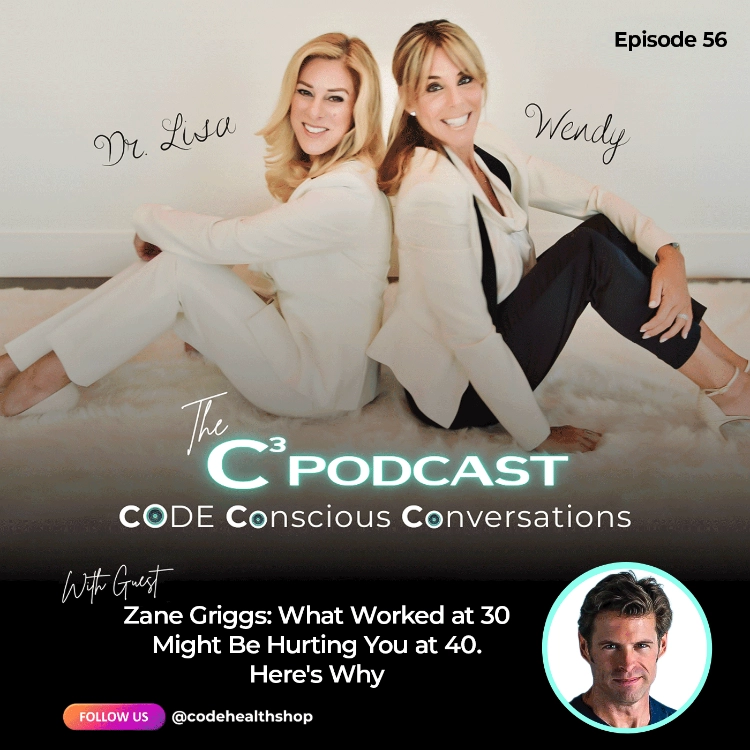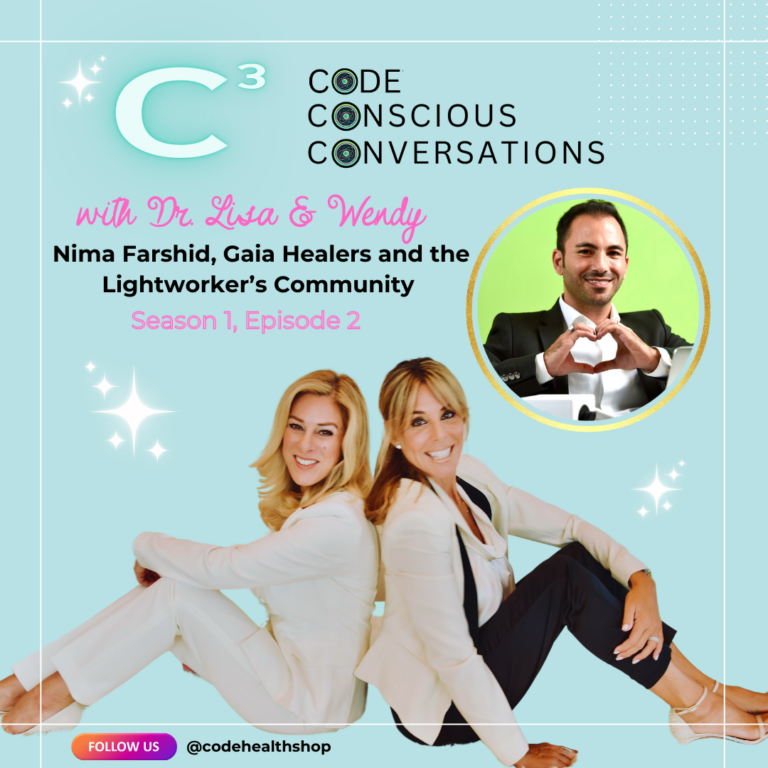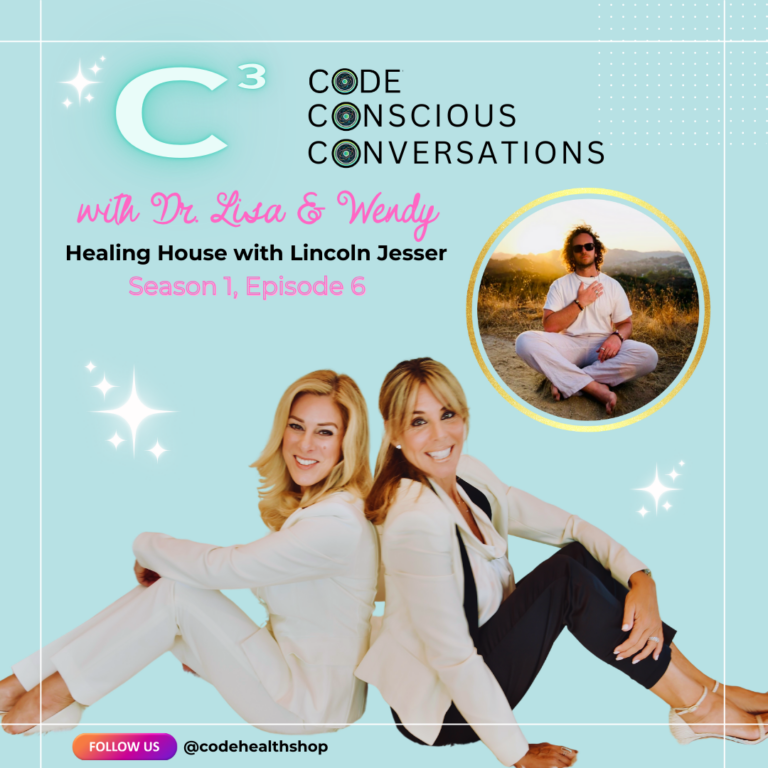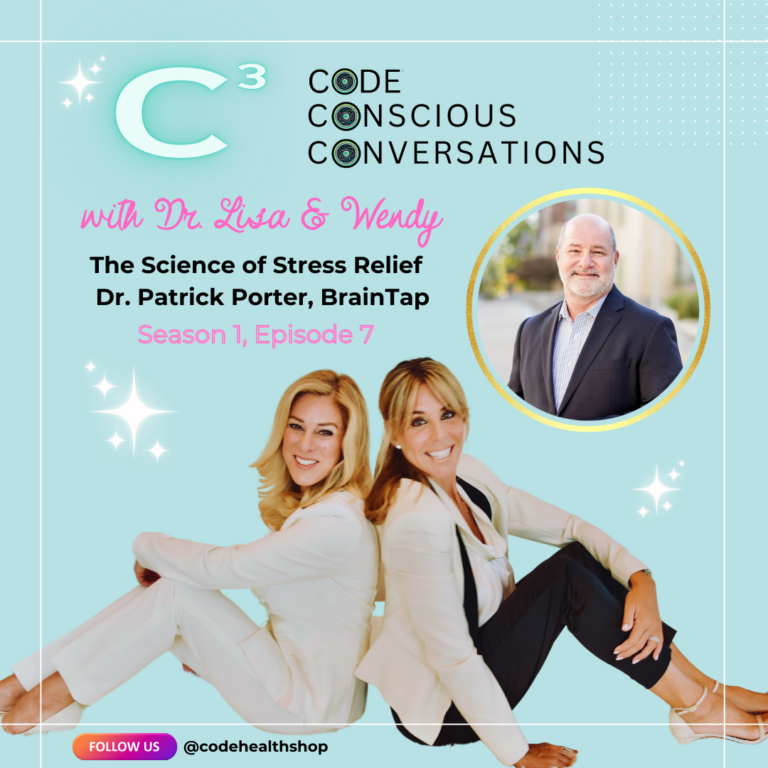Listen to this podcast now at C3 Podcast or join us on Apple Podcasts or Spotify.
You used to train hard and bounce back fast.
Skip a few meals, clean up your macros, and your body would shift within days.
Now? You fast longer. Lift heavier. Cut harder.
And still, your energy crashes. Your strength stalls. Your body holds on.
You start to ask:
Am I just getting older?
Is this hormone decline? Metabolic damage? Burnout?
Or is something deeper happening inside your system—something your current approach keeps missing?
This week on the C3 Podcast: CODE Conscious Conversations, we explore what really changes after 40, and why most of what the wellness world tells you to do is quietly pushing your body into shutdown.
Stacked Protocols. Stacked Stress.
You won’t hear this on most wellness podcasts—but we’ll say it here:
Most people who plateau in their 40s aren’t lazy or inconsistent.
They’re over-disciplined.
And they’re stacking the wrong inputs:
→ Fasting every morning
→ Low-carb, low-calorie meals
→ High-intensity training
→ Poor sleep from stress
→ Zero recovery window
It’s a perfect storm.
Not of failure—but of metabolic confusion.
Because your body doesn’t see those habits as optimization.
It sees them as threat.
And when threat builds up faster than recovery, the system stops adapting.
It stops burning fat.
It downregulates thyroid.
It stops making muscle.
It holds on. Because survival feels safer than change.
Women Burn Out Faster. And No One’s Talking About It.
Cold plunges. OMAD. Extended fasts. 90-minute bootcamps.
You see them everywhere.
But what you don’t see is this:
Most of those protocols were designed and tested on men.
Different hormonal rhythm. Different stress tolerance. Different feedback loop.
Women’s systems are built to sense threat faster and hold it longer.
Why? Because reproduction depends on safety.
When cortisol spikes, the body doesn’t just get tired.
It re-prioritizes. Reorganizes. And often, shuts down non-essentials like metabolic function, libido, and muscle building.
It’s not a bug in the system.
It’s wisdom.
But if you’re not aware of it, you’ll keep following strategies that chip away at the very thing you’re trying to heal.
Muscle Isn’t Just for Strength. It’s an Endocrine Organ.
Here’s what most people don’t realize:
Muscle doesn’t just help you move.
It’s biologically active. It talks to your brain. Your bones. Your metabolism.
It regulates blood sugar.
It stores glucose instead of fat.
It produces myokines—tiny messengers that improve insulin sensitivity, reduce inflammation, and support neuroplasticity.
Muscle is literally protective information for your body.
When you lose it, you don’t just lose strength.
You lose communication.
And when that breaks down, so does your ability to stabilize energy, mood, and metabolism.
So if your health feels shaky—start with your muscle.
It’s not just about how you look.
It’s about how your system is speaking.
“Normal” Labs Can Be a False Signal.
Your TSH looks fine. Your doctor shrugs.
But you feel exhausted. You can’t recover. Your mind is foggy.
Most labs are designed to detect dysfunction at the extreme.
But by the time something shows up as “abnormal,” it’s already been sliding for years.
What we actually need to be looking at:
→ Fasting insulin
→ Free T3 + reverse T3
→ Testosterone (yes, even in women)
→ Visceral fat changes
→ Muscle-to-fat ratio (not just weight)
Because your body is talking long before your lab report says there’s a problem.
You don’t need a diagnosis to know something’s off.
You need better questions—and better data.
Metabolic Health Is a Conversation—Not a Command.
The real shift happens when you stop forcing your body into outcomes.
And start listening to what it’s already trying to adapt around.
You’re not weak. You’re just using a protocol that doesn’t match your current capacity.
And capacity is everything.
If your inputs exceed your recovery, the system won’t respond—no matter how “healthy” your habits look on paper.
This episode is about tuning back in.
To your biology.
To your stress load.
To the feedback loops that are already shaping your results—even if you haven’t been tracking them.
🎧 We explore all of this with Zane Griggs on the latest episode of the CODE Health Podcast.
This one’s not about grinding harder.
It’s about learning the language of your body—and responding with precision, not pressure.
Listen to this podcast now at C3 Podcast or join us on Apple Podcasts or Spotify.







